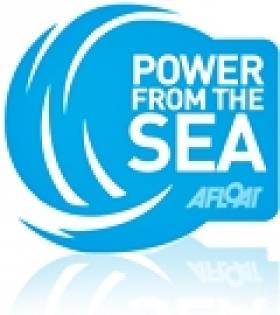Displaying items by tag: Dr Val Cummins
Ireland is “ about five years behind other countries” on floating offshore wind, Simply Blue Group’s chief impact officer Dr Val Cummins has said.
Dr Cummins was responding to a reported call by Minister for Energy Eamon Ryan on fellow energy ministers to “get out of the way” of the renewable energy industry.
A Sunday Business Post report on Mr Ryan’s speech at the International Energy Agency (IEA)conference, which he chaired this week, referred to him calling for governments to “allow industry leaders and academics to deliver change at speed”.
A press release issued by Ryan’s department does not refer to him calling on governments to “get out of the way”, but quotes him as stating that that “it is time to “get down to business now” on delivering on commitments over the coming two years.”
The release says he urged that commitments on renewables “would be embedded and further developed at upcoming global events, including the G7 in Italy, the G20 in Brazil and the next COPS in Baku and particularly Brazil”.
National ministers from the IEA’s member countries have agreed to start discussions with India on the Indian government’s request to become a full IEA member, recognising the country’s “strategic importance” in tackling global energy and climate challenge.
 Minister for Energy Eamon Ryan
Minister for Energy Eamon Ryan
In an open letter to Ryan on Linked In, Dr Cummins says that “we don't have to wait for innovation in the years ahead”.
“Ireland is now about five years behind other countries on floating offshore wind. Demonstration arrays are currently deployed in Scotland, France, Portugal, Norway, Taiwan, Korea, Japan,” she writes.
“ Full commercial scale projects will come onstream in these countries, and others, by 2030. Therefore, the technology is ready,” she states.
“ However, Ireland is not. The Future Framework Consultative Document fails to provide a meaningful plan for getting floating offshore wind started. In its current form, it is much ado about nothing. We have to be honest when the Emperor has no clothes,” Cummins states.
“As for calling on energy ministers to 'get out of the way', the sudden u-turn, from a developer to plan-led approach to offshore wind in 2023 was ill-conceived in the absence of relevant expertise and experience in your department,”she says.
“ I have no doubt that the change was well intended, but it has increased uncertainty and jeopardised investment. The road the net zero is longer than ever. The production of Designated Marine Area Plans (DMAPS) have become a new policy bottleneck,” she says.
“In your speech you asked 'how do we develop floating offshore wind technology?' Quite simply, get the DMAPS done by Q1 2025. Commit to a timeline for stepping stone projects and develop a port for floating wind,”she says.
“Don't leave your words ring hollow. Engage with us. I am sure that industry, academia and civil society are poised and willing to help accelerate towards a just transition. We ask you to open the door to meaningful collaboration,”she says.
Dr Cummins’s open letter is on Linked In here
UCC Wave Energy Trials Central to New Maritime Cluster
#POWER FROM THE SEA - A €9 million Europe-wide wave energy trial programme is one of the key elements of a new Government programme designed to transform Ireland as a maritime nation.
According to The Irish Times, University College Cork's Hydraulics and Maritime Research Centre will run testing of wave energy, tidal energy and offshore wind energy devices across a network of sites in 12 European countries participating in the new marine renewables infrastructure network Marinet.
Irish test sites in the network include the national ocean test facility in Cork and centres operated by the Sustainable Energy Authority of Ireland (SEAI) at Galway Bay and Belmullet.
The UCC centre also forms part of the new Irish Maritime and Energy Resource Cluster (IMERC), launched last Friday by Taoiseach Enda Kenny.
The cluster comprises UCC, the Irish Naval Service, Cork Institute of Technology and the National Maritime College of Ireland with the initial aim of creating 70 new research jobs by 2014 in the areas of wave energy, green shipping and sustainability of ocean resources.
IMERC director Dr Val Cummins said: “The aim of IMERC is to promote Ireland as a world-renowned research and development location that will unlock Ireland’s maritime and energy potential."
The Irish Times has more on the story HERE.
- Irish Naval Service
- maritime
- Cork
- Galway Bay
- Belmullet
- National Maritime College of Ireland
- wind energy
- UCC
- Cork Institute of Technology
- renewable energy
- wave energy
- sustainable energy
- tidal energy
- network
- testing
- Sustainable Energy Authority of Ireland
- Taoiseach Enda Kenny
- SEAI
- Hydraulics and Maritime Research Centre
- Marinet
- devices
- Irish Maritime and Energy Resource Cluster
- IMERC
- Dr Val Cummins






























































